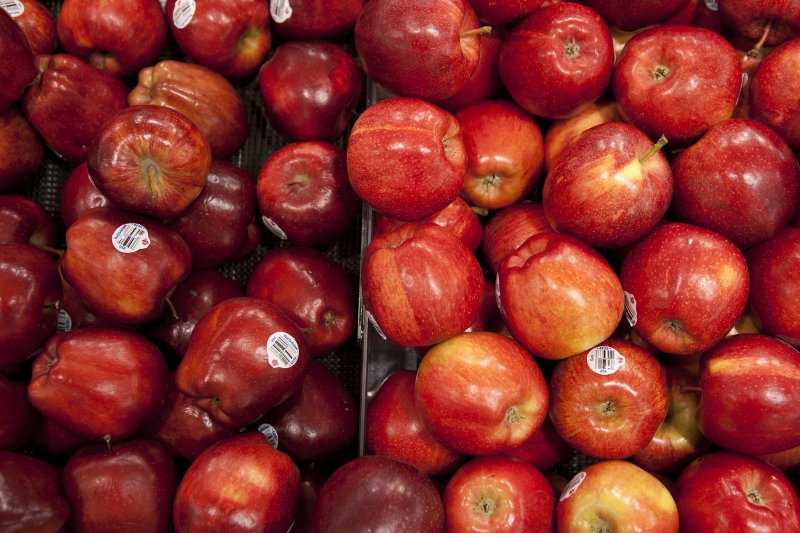Eating more blueberries, grapes and apples may reduce diabetes risk. UPI/Gary C. Caskey |
License Photo
BOSTON, Aug. 30 (UPI) -- Eating whole fruit -- especially blueberries, grapes and apples -- was correlated with a lower risk of type 2 diabetes, U.S. researchers say.
Senior author Qi Sun, assistant professor at the Harvard School of Public Health and Brigham and Women's Hospital in Boston and colleagues examined data gathered between 1984-2008 from 187,382 participants in three long-running studies: Nurses' Health Study, Nurses' Health Study II and Health Professionals Follow-up Study. Participants who reported a diagnosis of diabetes, cardiovascular disease, or cancer at enrollment were excluded.
The study participants filled out questionnaires on what type of food they ate and how frequently.
The study found 12,198 participants, or 6.5 percent, developed diabetes during the study period.
The researchers looked at overall fruit consumption, as well as consumption of individual fruit: grapes or raisins; peaches, plums, or apricots; prunes; bananas; cantaloupe; apples or pears; oranges; grapefruit; strawberries; and blueberries. They also looked at consumption of apple, orange, grapefruit, and "other" fruit juice.
The study, published in the British Medical Journal, found people who ate at least two servings each week of certain whole fruit -- particularly blueberries, grapes and apples -- reduced their risk for type 2 diabetes by as much as 23 percent in comparison to those who ate less than one serving per month. Conversely, those who consumed one or more servings of fruit juice each day increased their risk of developing type 2 diabetes by as much as 21 percent, the study said.
The researchers found that swapping three servings of juice per week for whole fruit would result in a 7 percent reduction in diabetes risk, the researchers said.















